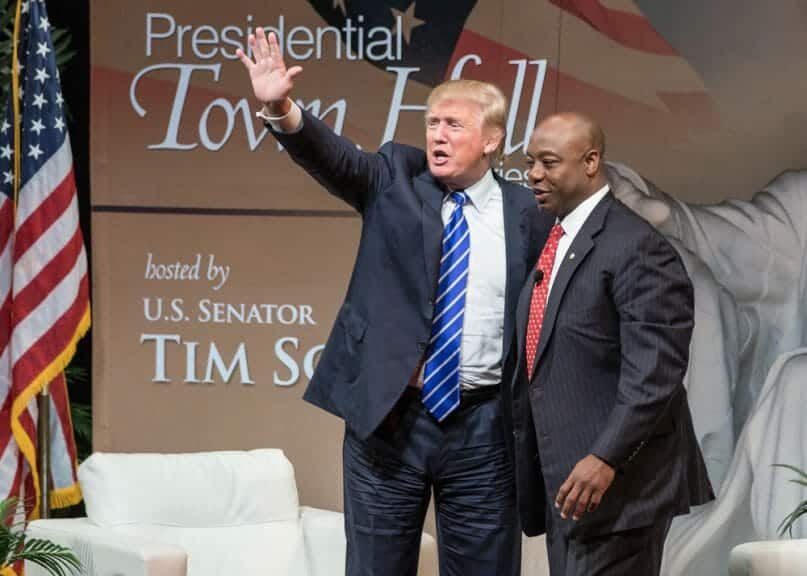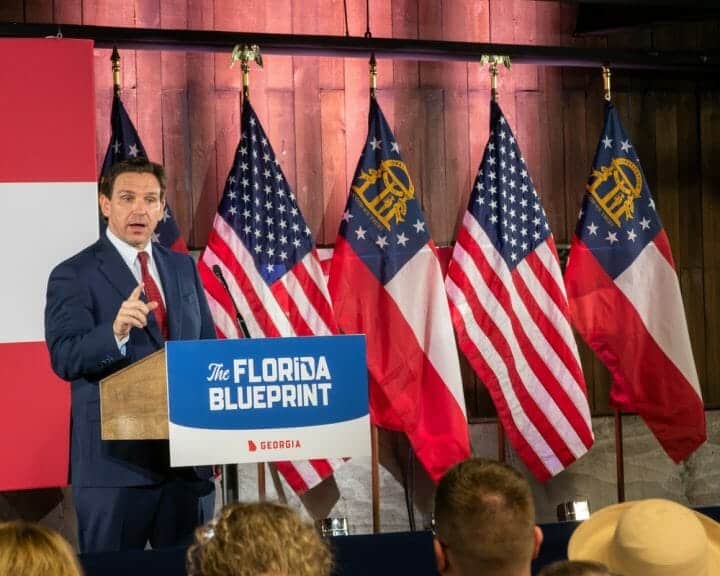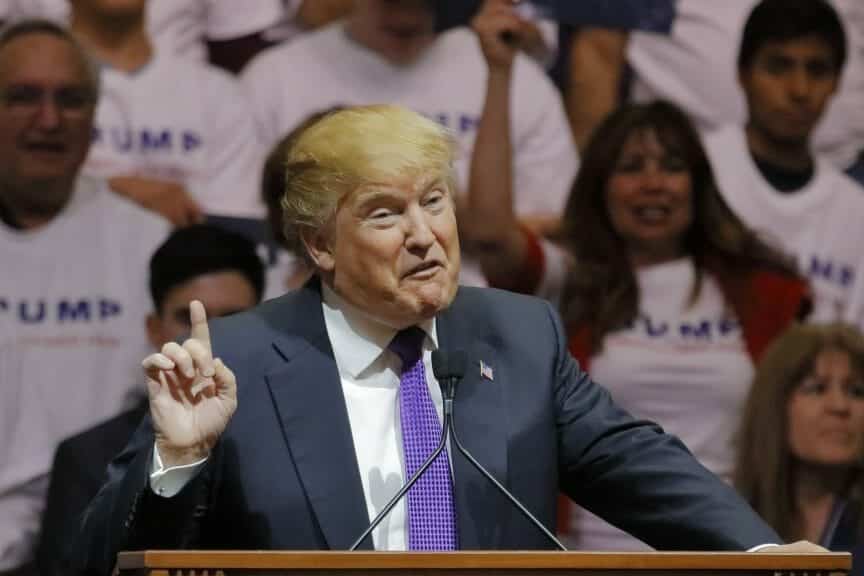Last week, Republicans Tim Scott and Ron DeSantis announced their plans to run for president, joining several other Republicans who have also committed to the 2024 election.
All of these candidates are poised to split the party, which could be a good thing for Trump, as non-Trump votes could be divided among many candidates.
Non-Trump Candidates Increase in Ranks
For Trump, “the more candidates, the better,” wrote The New York Times on May 28. As Republicans keep announcing their plans to run in 2024, political analysts believe that an influx of competition might actually help Trump. Republican voters who have decided not to vote for Trump will be split among many different non-Trump options, leading some Democrats to fear that a second Trump victory could be on the horizon.
On Monday, May 22, South Carolina Senator Tim Scott announced his plans to run for president, two days before Florida Governor Ron DeSantis officially launched his own campaign on May 24. (DeSantis, meanwhile, garnered criticism for his choice to announce his run via a bizarre Twitter conversation with Elon Musk, though DeSantis had been dropping hints since at least May 18, when he questioned Trump’s ability to win during a donor call.)
Former VP Mike Pence has not yet stated that he will run, but many speculate that he’ll announce his presidential bid by the end of June. Meanwhile, former New Jersey Governor Chris Christie also seems to be planning a 2024 campaign and may very well join the ranks of Nikki Haley, former South Carolina Governor, and other Republicans who have already committed to running.

Competition Grows
According to The New York Times, the competition from other Republicans poses a threat to DeSantis, who might have expected that he would be able to consolidate the non-Trump Republican vote. Since analysts expect Trump’s base—comprising 30 percent of the Republican party—to remain loyal to Trump in 2024, all other Republican candidates must fight each other for the remaining votes, which will become more fractured with every new Republican who enters the presidential race.
Many of the candidates, including DeSantis, Scott, and Pence, have carved out specific demographics from which they’re hoping to receive support. Pence, a Midwestern evangelical Christian, seems likely to attract that specific group of voters, while Scott seems to be marketing himself to college-educated suburban Republicans in the South.
DeSantis’s Chances
DeSantis’s policies and statements surrounding Critical Race Theory in schools, abortion, the death penalty, and Ukraine have won him praise and support from Republicans across the US beyond his home state of Florida (as well as anger and skepticism from many Democrats). However, DeSantis may fall victim to Trump’s “divide-and-conquer” strategy, as the rapidly ballooning field of Republican candidates suggests that no one candidate, except, perhaps, for Trump, can count on a consistent base of supporters.
DeSantis’s campaign, on the other hand, has expressed optimism for 2024. In a private donor audio briefing that was leaked and published online last week, DeSantis adviser Ryan Tyson told listeners that the Republican vote would split three ways: 35 percent “only Trump” voters, 20 percent “never Trump,” and the remaining 45 percent as supporters DeSantis can count on.
In the audio, Tyson says that all other Republican candidates will fall into the “never Trump” group, explaining,
If your name is not Ron DeSantis or Donald Trump, you are splitting up this share of the electorate.
Ryan Tyson, senior adviser to Ron DeSantis
However, the DeSantis campaign still has yet to see this division play out in real time. An Economist article from last week casts doubt on DeSantis’s chances of beating Trump, arguing that the chances of a DeSantis win are “growing slimmer” as more Republican candidates emerge.

Trump vs. the Rest of the Republicans
A hallmark of the 2024 Republican race might be the candidates’ reluctance to make cutting remarks about Trump, fearing that alienating Trump’s supporters will do them a disservice among their own voters. In many ways, 2024 may mirror 2016 in the sense that many other Republican candidates in 2016 largely left Trump alone, thinking that he would never win the nomination.
Now that Trump already has one presidential term under his belt, rivals still seem unwilling to criticize Trump too openly, choosing instead to go to bat with other non-Trump candidates. (DeSantis, notably, has been taking flack.) According to New Hampshire Governor Chris Sununu, a moderate Republican, who has hinted that he may run for president himself, has argued that avoiding criticizing Trump is doing all other Republicans a disservice.
All Republicans have to be hitting Donald Trump. Any Republican that isn’t hitting Donald Trump hard right now is doing the entire party a disservice because if only one or two people are willing to take a shot at Donald Trump, it looks personal. It looks petty.
Chris Sununu, Governor of New Hampshire, quoted in The New York Times
Trump himself seems to be unruffled about the influx of other candidates. When Nikki Haley called him in January to tell him she was running, he reportedly said, “Do what you’ve got to do.”














